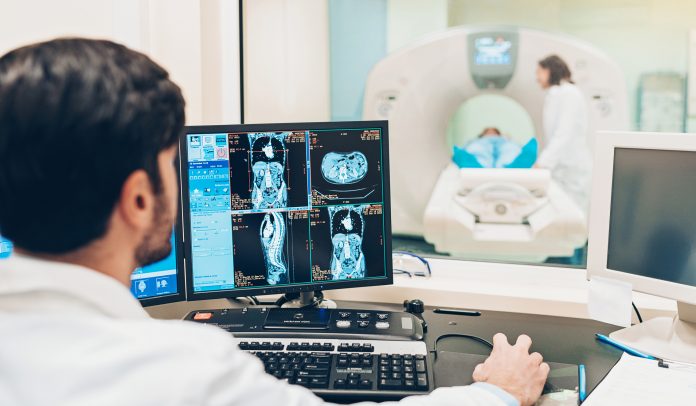Data reveals shockingly long waiting periods for diagnostic procedures, including ultrasounds, MRI scans and CT scans. But why is the wait for MRI scans and other tests increasing?
In England, some patients are facing significant delays for crucial diagnostic tests like ultrasounds, MRIs, and CT scans, with wait times stretching up to two and a half years, The Guardian reported.
A 2.5-year wait for MRI scans
The longest wait was for an MRI scan, at two and a half years. For ultrasounds, almost two years, and CT scans required a year of waiting, as revealed through Freedom of Information requests made by the Liberal Democrats.
Patients with heart issues are among the most severely impacted, with the NHS indicating a 49-week wait for an echocardiogram and a 475-day wait for an angiography.
Patients should ideally wait less than six weeks for diagnostic tests
According to the NHS, patients should ideally wait less than six weeks for diagnostic tests, with a target of only 1% of patients waiting more than six weeks. However, recent research by the House of Commons Library on behalf of the Liberal Democrats shows that 25% of all patients are experiencing delays beyond this target.
The data also reveals a significant increase in the waiting list for diagnostic tests, surging by over half a million people to reach 1.6 million individuals – marking a 50% increase since 2019.
The are 7.7 million people waiting for treatment, specifically individuals referred to a consultant. While the second category may include patients awaiting scans or checks as part of their consultant-led treatment, the diagnostic test numbers include all patients needing a test, regardless of whether they are under consultant-led care.
Diagnostic procedures serve various purposes, such as detecting cancer, diagnosing heart conditions, and assessing the severity of musculoskeletal injuries. In the NHS in England, over 2 million diagnostic procedures are conducted each month.
Despite the government’s efforts to establish new community diagnostic centres, many patients still face several weeks of waiting for these tests, despite the additional investment.
Why are MRI scan waiting lists the most impacted?
The most substantial increase in waiting lists is in MRI scans, with a 33% rise, reaching 280,000 patients waiting. For CT scans, the waiting list has grown by 40,000 individuals, now totalling 180,000.
The Liberal Democrats’ Freedom of Information request to NHS trusts revealed some alarming waiting times for standard diagnostic scans. At Sandwell and West Birmingham NHS Trust, the longest wait was 914 days for an MRI scan, 665 days for a non-urgent X-ray, 693 days for an ultrasound, and 367 days for a CT scan.
Additionally, at Wye Valley NHS Trust, an individual waited for 49 weeks to receive an echocardiogram, while the longest reported wait for an angiography was 475 days at Milton Keynes University Hospital Foundation Trust.
Ed Davey, the leader of the Lib Dems, said: “What this Conservative government has done to the NHS is nothing short of a national scandal. Millions are forced to wait in pain and discomfort, anxiously wondering when they will get a diagnosis, let alone treatment.
“We cannot fix our economy without fixing our NHS. People can’t get back to work when they’re stuck waiting to see a GP, get a diagnosis or start treatment. The longer they wait, the worse their health gets and the greater the stress for themselves and their loved ones.”
“We cannot fix our economy without fixing our NHS.”
Long-term solutions for healthcare
The party is calling for expanding community diagnostic centres to speed up medical evaluations. They also push to guarantee that everyone can consult their GP within seven days. They have proposed increasing the number of available appointments and the overall count of GPs by 8,000.
According to NHS England data, the average waiting time for diagnostic tests has decreased significantly, dropping from nearly nine weeks during the pandemic’s peak to just 3.1 weeks in July. In July, a total of 2.2 million tests and checks were conducted.
Miriam Deakin, the director of strategy and policy at NHS Providers, expressed concern that ongoing strikes exacerbated the issue. Officials are expected to reveal that over a million patients had their care delayed due to industrial action.
Editor's Recommended Articles
-
Must Read >> Digital transformation in the NHS: The power of it
-
Must Read >> £250 million boosts NHS capacity with 900 new beds














